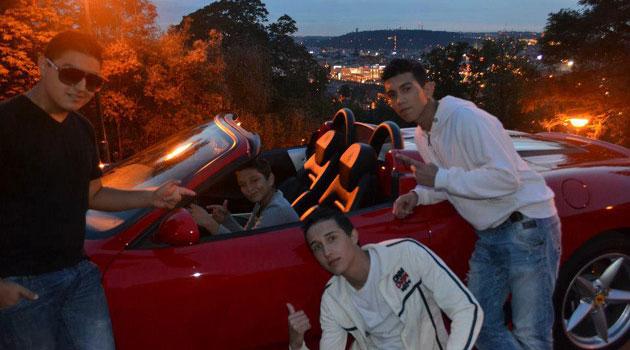Czech-Roma NGO: "Practical school" not beneficial to Romani children's futures

Staffers of the Slovo 21 civic association in the Czech Republic will be attempting to discuss with Romani parents the idea that their children should be enrolled into mainstream primary schools, not "practical" ones. The NGO’s latest project, called "Mom, Dad, I want to go to school", endeavors to communicate the message that "practical schools" will not benefit their children’s futures.
By watching a series of theatrical scenes or through screenings of the successful music video "Nebuď dilino!" ("Don’t be stupid!"), which has been seen online by almost 90 000 people so far (see http://www.romea.cz/en/news/czech/romani-rappers-avoid-czech-practical-primary-schools), the project will inform Romani parents of the importance of quality education for their children and motivate them to attain it. Romani parents in particular lack sufficient information about their children’s educational options.
This lack of information contributes to ongoing segregation of Romani pupils into what used to be called "special schools". A total of 10 workshops have taken place around the Czech Republic since September in places with large Romani populations – Brno, Český Krumlov, Chodov, Hradec Králové, Mladá Boleslav, Ostrava, Plzeň, Prague, Přerov and Trmice.
Romani parents have been informed at these workshops about their rights and the rights of their children by watching actors portray scenarios based on real-life stories. Parents are then given the opportunity to actively enter the game and show how they would behave in such situations.
This illuminating method of experiential learning also transmits factual information to Romani parents about the repercussions of their enrolling children into schools designed to serve the intellectually disabled. Parents receive specific answers to practical questions about how many such schools exist in their region as well as an overview of various school facilities in their hometowns; children are actively involved in the workshops as well and are given gifts of school supplies and worksheets to take home.
"The segregation of Romani children has long been criticized by a wide variety of international institutions as well as by Czech institutions involved in the fight against excluding Romani pupils from mainstream education. Many Romani children are paying the price for the way the system is currently set up, experiencing academic failure, grappling with the anti-Romani prejudices of some teachers, and being excluded from the collective of their fellow pupils. This is why Romani children often end up attending ‘practical schools’ even though intellectually they are capable of completing a classic primary education," says project coordinator Michal Miko.
Six years after the D.H. judgment against the Czech Republic at the European Court of Human Rights, the country continues to exclude Romani pupils from mainstream education and transfer them into the "practical schools". According to the Czech School Inspectorate, 26.4 % of those attending such schools are Romani (the Roma are estimated to comprise only 2 % of the country’s population).
In 2007 a group of Romani children from Ostrava won the lawsuit they filed in Strasbourg over being denied a full-fledged education by being incorrectly assigned to what were then called "special schools". The Czech Government now must eliminate segregation in education on the basis of that judgment.
The results of a Czech School Inspectorate investigation from 2012 showed that segregation has not managed to be completely eliminated and that segregated Romani classes or even entire schools continue to spring up around the country. Slovo 21 believes incorrect diagnoses by educational-psychological counseling centers, discriminatory behavior by schools, and Romani parents’ lack of information are the most serious causes behind the disproportionate assignment of Romani children into the education system for the intellectually disabled.
Roughly one-fourth of all children attending the "practical schools" are Romani even though only 2.6 % of the population of the Czech Republic is diagnosed with "light mental disability" and educated accordingly. Romani people are the most discriminated-against group of people in the Czech Republic and the segregation they face in the Czech education system leads to miserable odds of their being able to assert themselves on the labor market as adults.
The repercussions of this state of affairs, which has been ignored for decades, are contributing more than ever to the tense situation in Czech society today. For their part, Romani parents are not sufficiently aware that it is they who ultimately decide which school their children will attend.
Romani parents do not receive adequate information about their parental obligations, responsibilities or rights with respect to their children’s education, often as a result of school administrations failing to communicate that information to them. Through this project, which is supported by the OSCE and the Prague office of the Heinrich Böll Foundation, Slovo 21 is assisting Romani people themselves to participate in an emancipated way in the integration of their children into mainstream education in the Czech Republic.